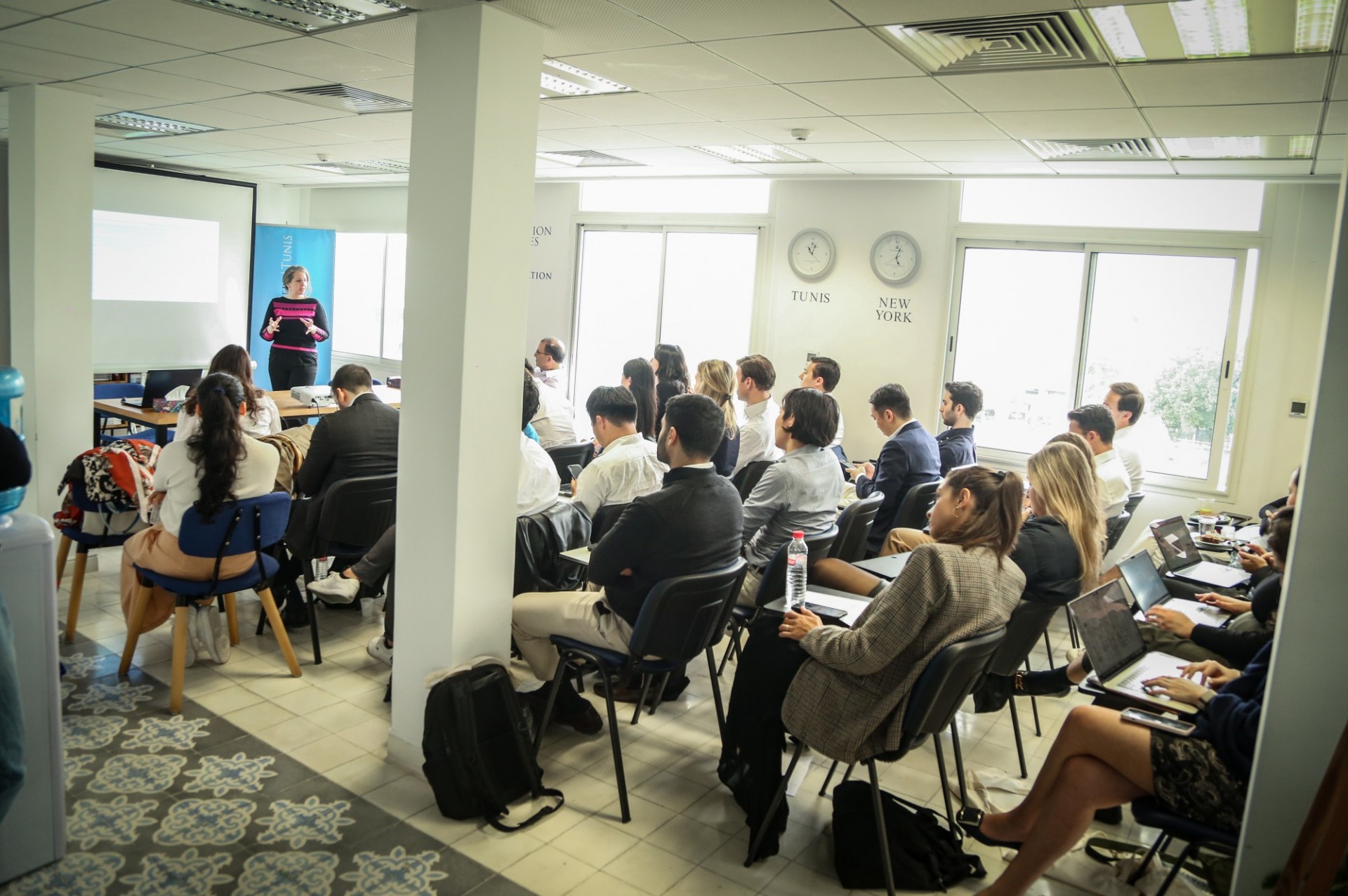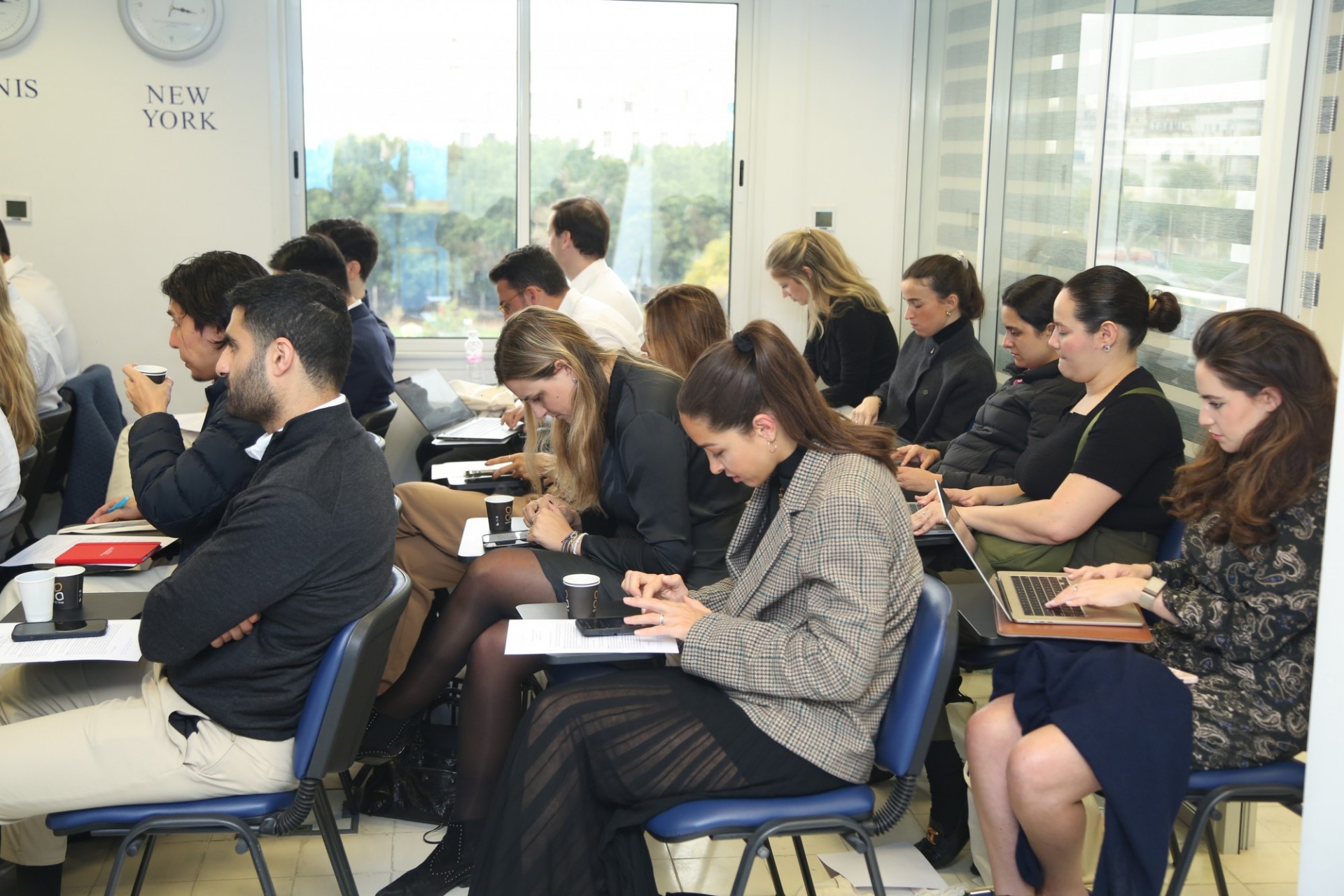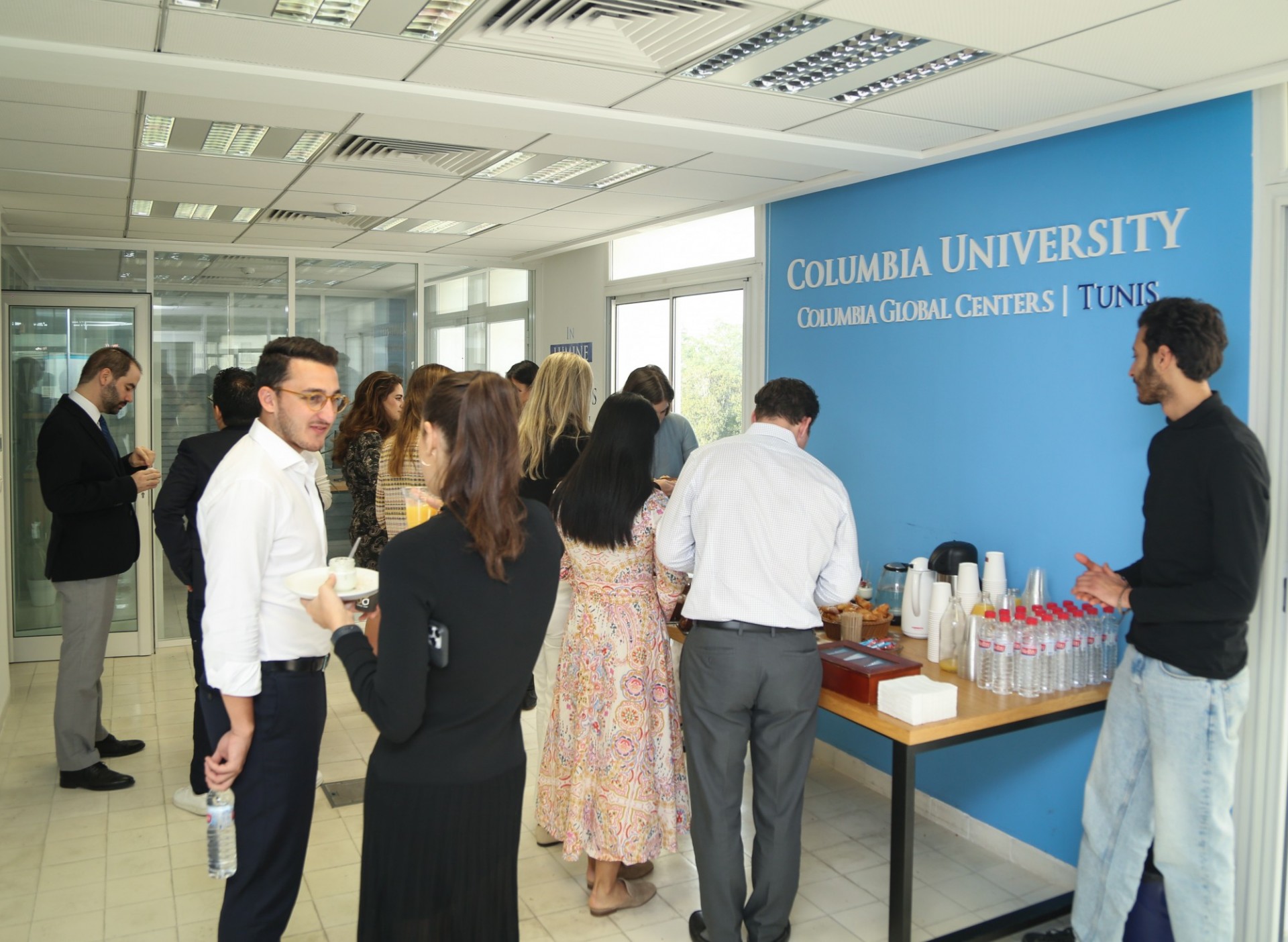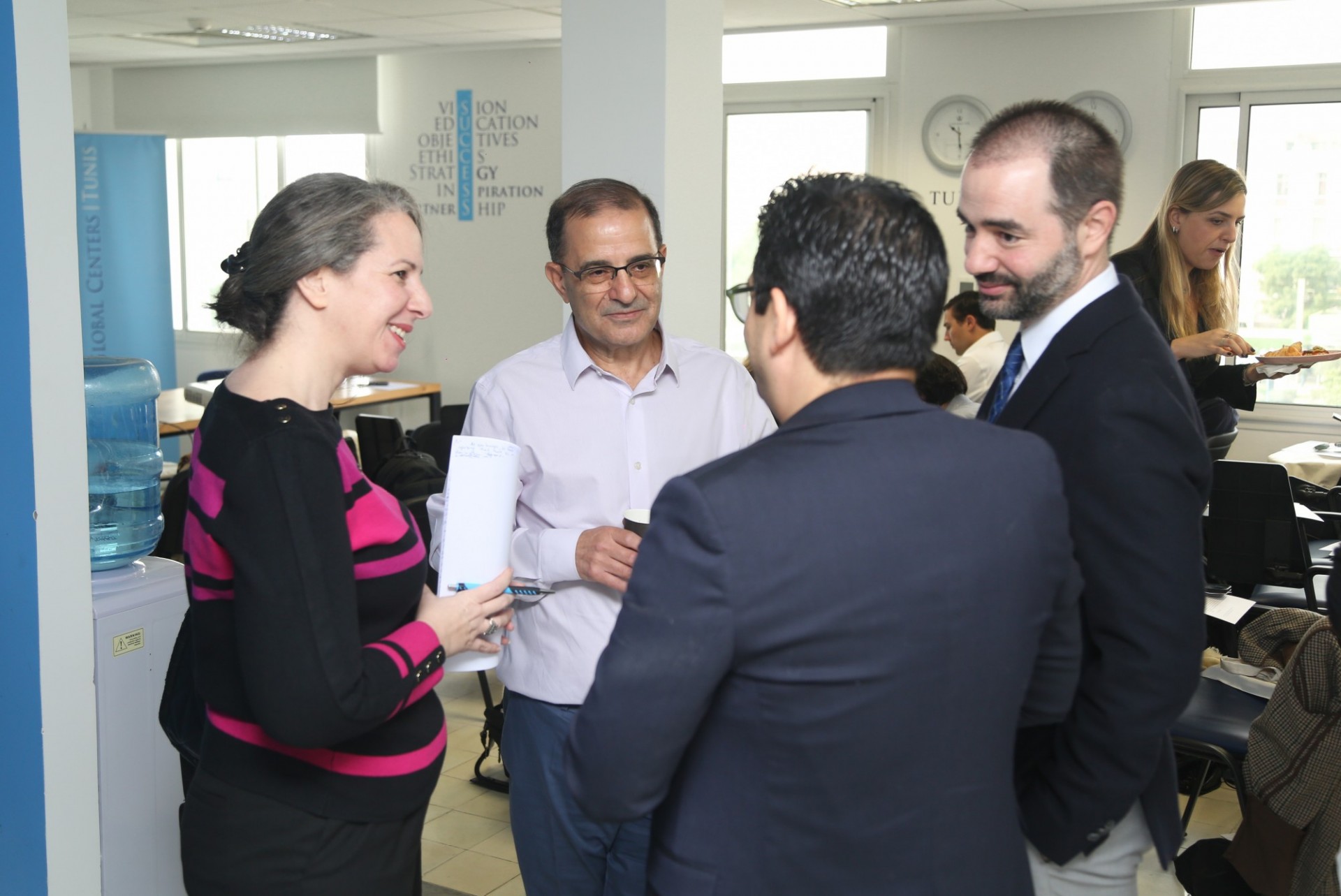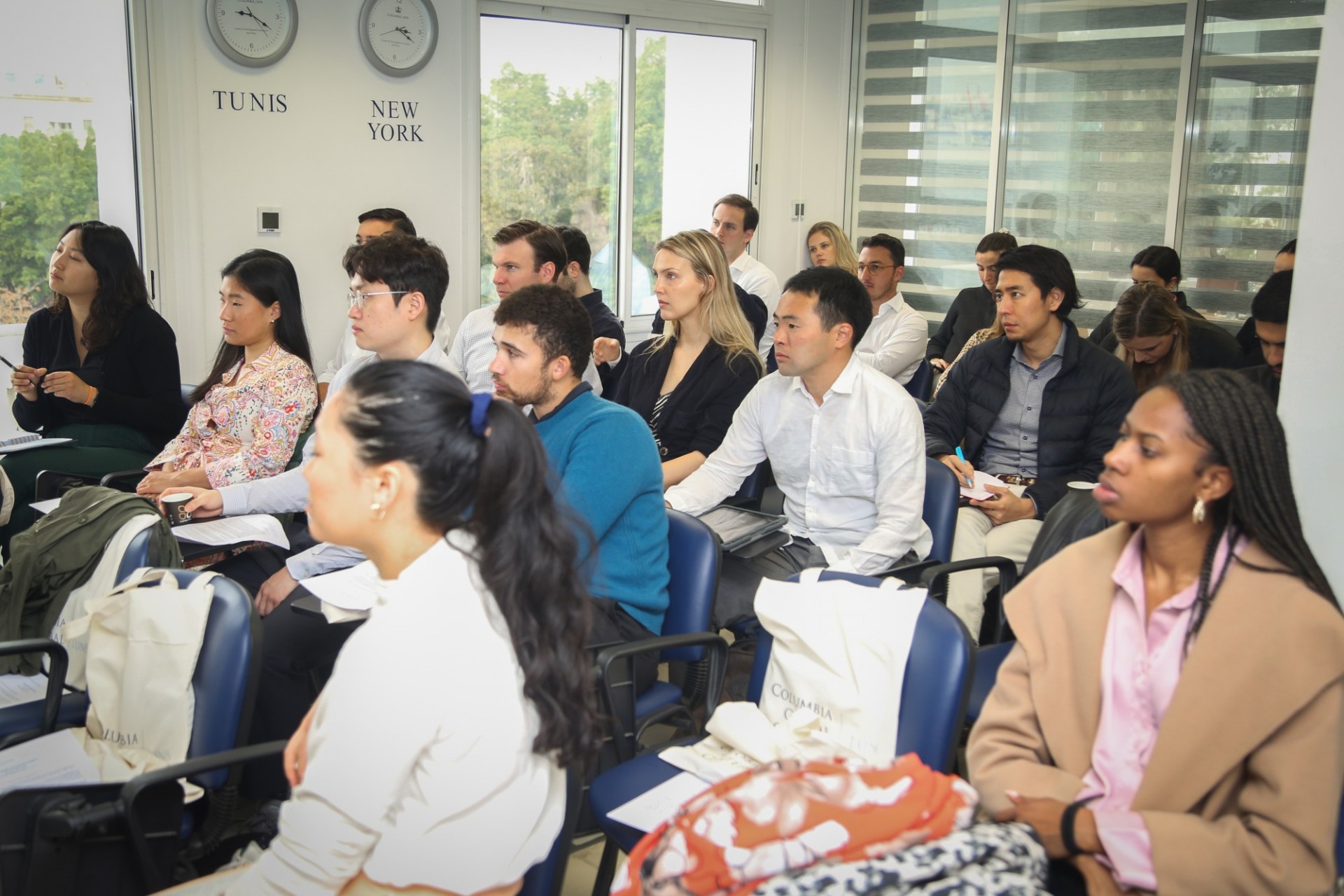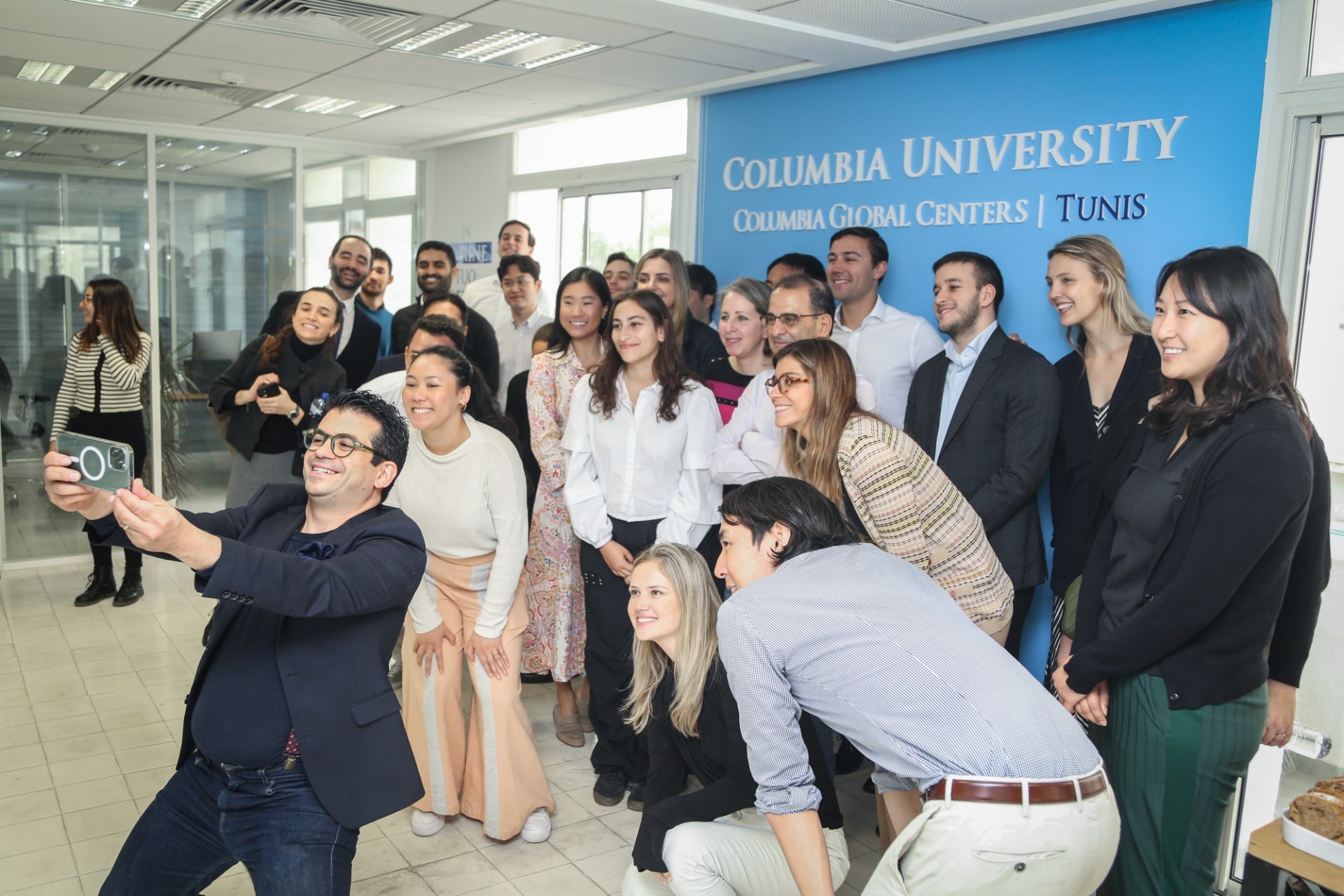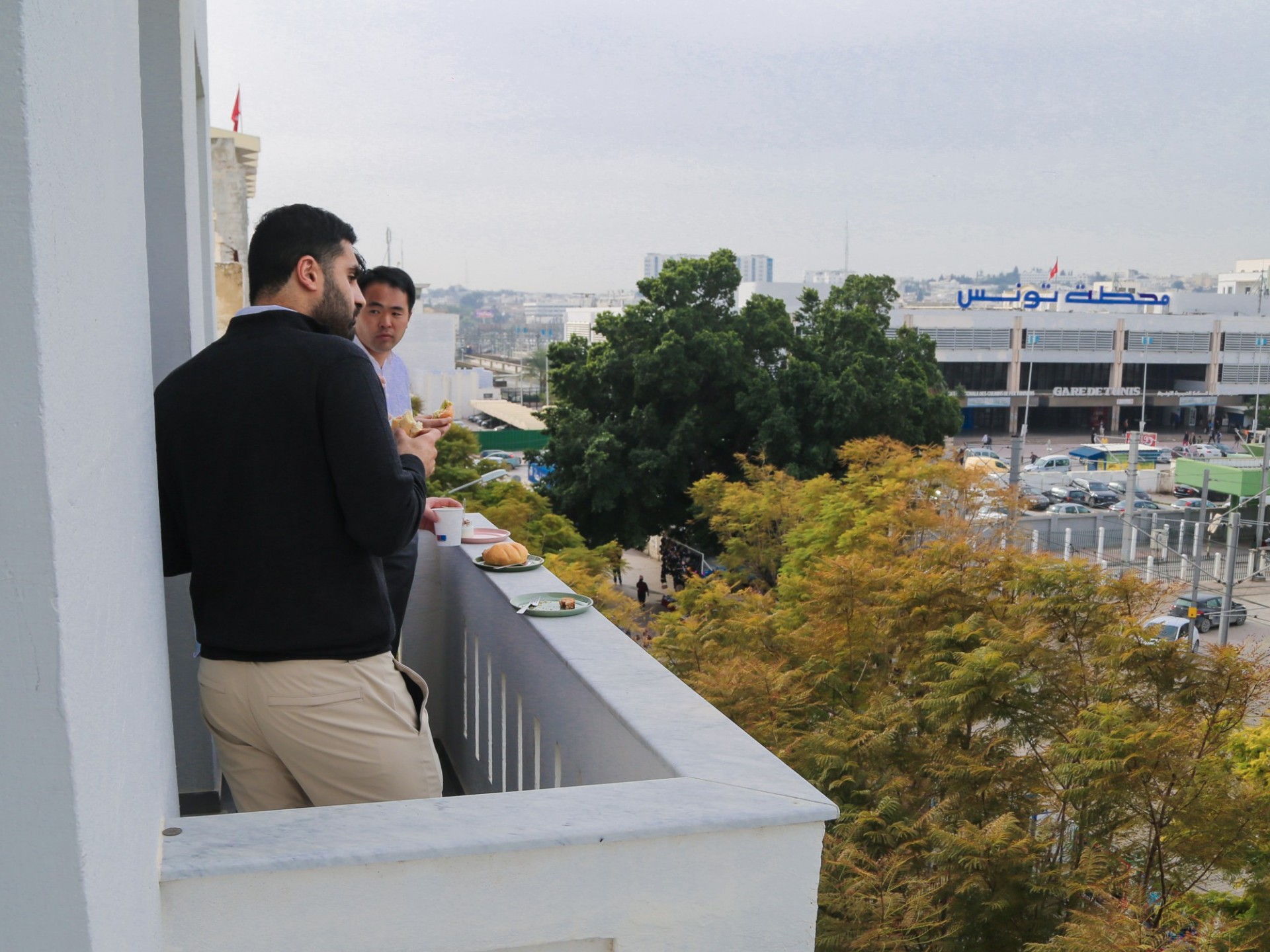Doing Business in Tunisia: Columbia MBA Students' Global Immersion
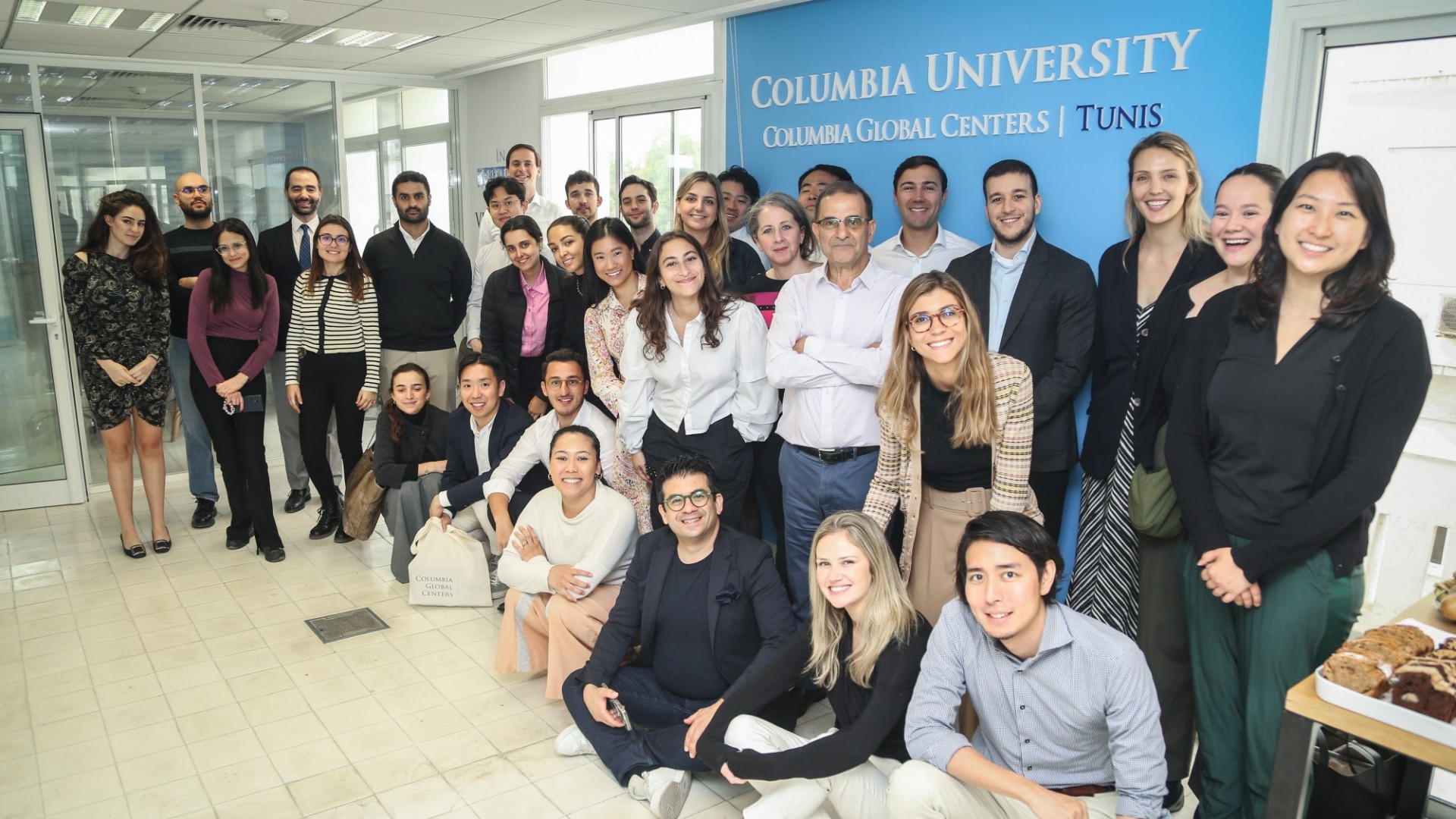
Pr. Kamel Jedidi, Jerome A. Chazen Professor of Global Business at Columbia Business School, and Vice Chair of the CGC Tunis Faculty Advisory Committee has been annually conducting visits to Tunisia with a group of Columbia graduate students from the Global Immersion Program. This initiative brings together approximately thirty students to explore various aspects of North Africa (and Tunisia)'s economy and business landscape.
For the 2024 Immersion Week in Tunisia, Columbia Global Centers | Tunis featured presentations by Mr. Youssef Meddeb and Ms. Farah Hached. The speakers engaged the MBA students in discussions about their respective businesses and shed light on the challenges and opportunities of conducting business in the region.
Mr. Youssef Meddeb, with 17 years of experience in managing opinion polls across North Africa and the Middle East, shared his journey from a junior data analyst to heading the regional division for market research, opinion polls, and business development at a leading survey firm in the country. In 2014, he ventured into entrepreneurship by founding One to One for Research and Polling, aiming to establish it as a premier research firm in the region. Today, the company boasts 30 permanent employees, 10 consultants, and 1000 fieldworkers.
In his lecture, Mr. Meddeb explored the socio-economic landscape of Tunisia and Senegal, offering insights from polls and research conducted by One to One for Research & Polling. He addressed the two countries' socio-economic conditions, highlighting pressing issues for the government’s consideration through polling data. Despite both nations prioritizing 'Management of the Economy,' there was a significant contrast in the numbers: while 94% of Tunisians emphasized it, only 45% of Senegalese shared a similar viewpoint.
Mr. Meddeb further delved into how the Tunisian public's perceptions of world leaders' policies towards MENA and their perceptions of powerful countries shifted after the recent events in Gaza, citing data gathered both before and after October 7th to underscore the magnitude of the change.
Addressing the firm's challenges, Mr. Meddeb discussed practical strategies, including modernizing solutions, exploring international markets, and fostering innovation. The presentation then concluded with an engaging open discussion involving the students; Topics ranged from diversification of services to reinforcing the company's presence in specific regions and exploring the possibility of expansion into well-developed countries or focusing on emerging neighbor markets.
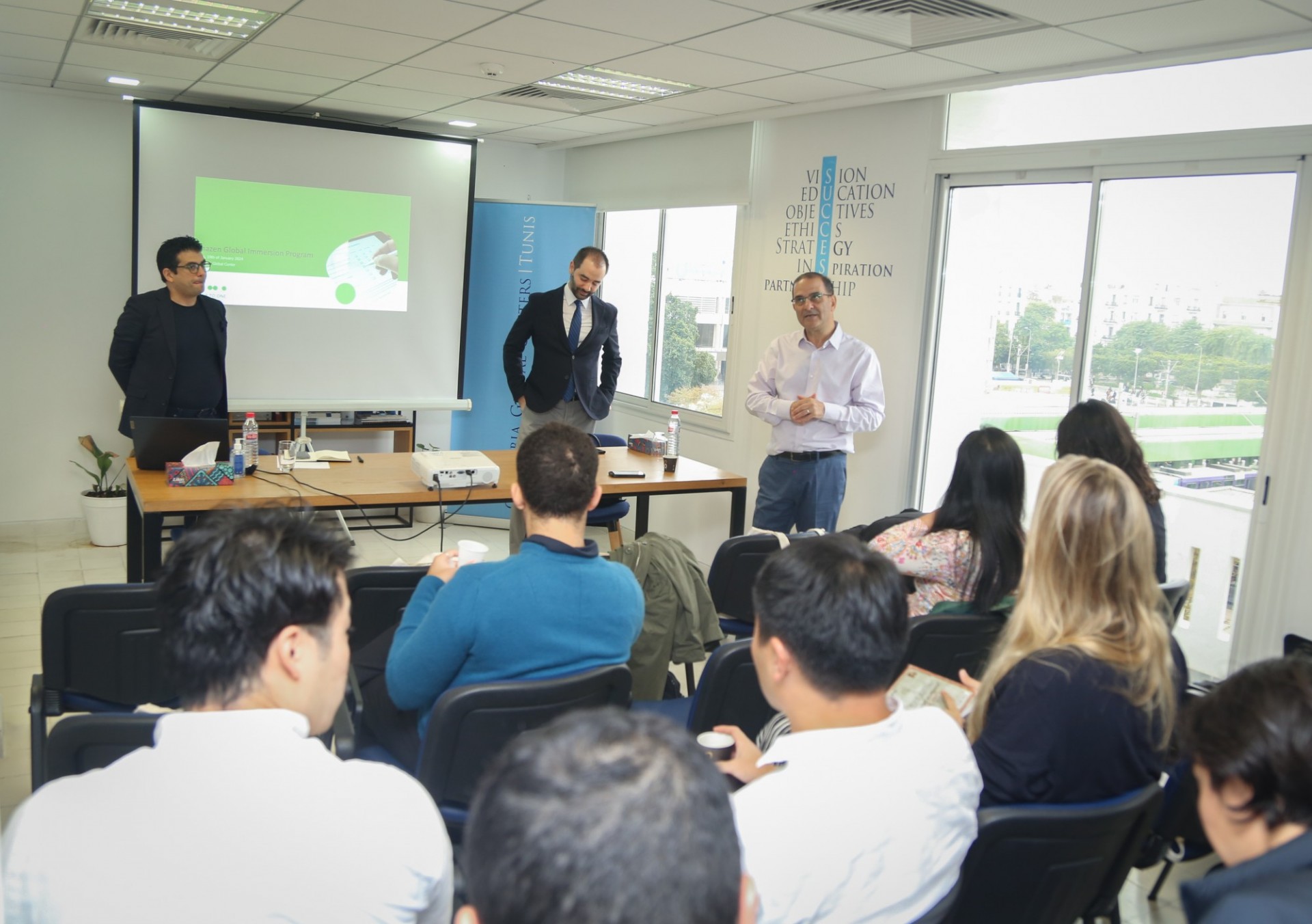
Ms. Farah Hached, a trained lawyer and Vice-President of Mahmoud el Materi University, is known for her contributions to academia and policy research, as well as her civic engagement. As the founding president of Labo’ Démocratique, a think tank established in 2011, she participated in promoting democratic values and addressing critical issues in Tunisia.
Over the past 12 years, Ms. Hached has overseen numerous projects on democratic transition in Tunisia through Labo’ Démocratique. Recognizing her knowledge and leadership, she was appointed a member of the steering committee for security sector reform by the Presidency of the Government of Tunisia in 2018.
In her presentation, she spoke about leading a private university in Tunisia. Drawing from her experience at Mahmoud el Materi University since 2016, she highlighted her efforts in restructuring the administration and procedures, fostering international development, implementing research and innovation policies, and establishing the new School of Law, Political Science, and Management.
Ms. Hached also offered a detailed analysis of Tunisia's political landscape, delving into the implications of recent political changes. Her expertise provided the MBA students with a practical understanding of the intricate connections between law, governance, and business in Tunisia, which contributed to a more nuanced awareness among the students regarding the complexities influencing the region's economic and political environment.
